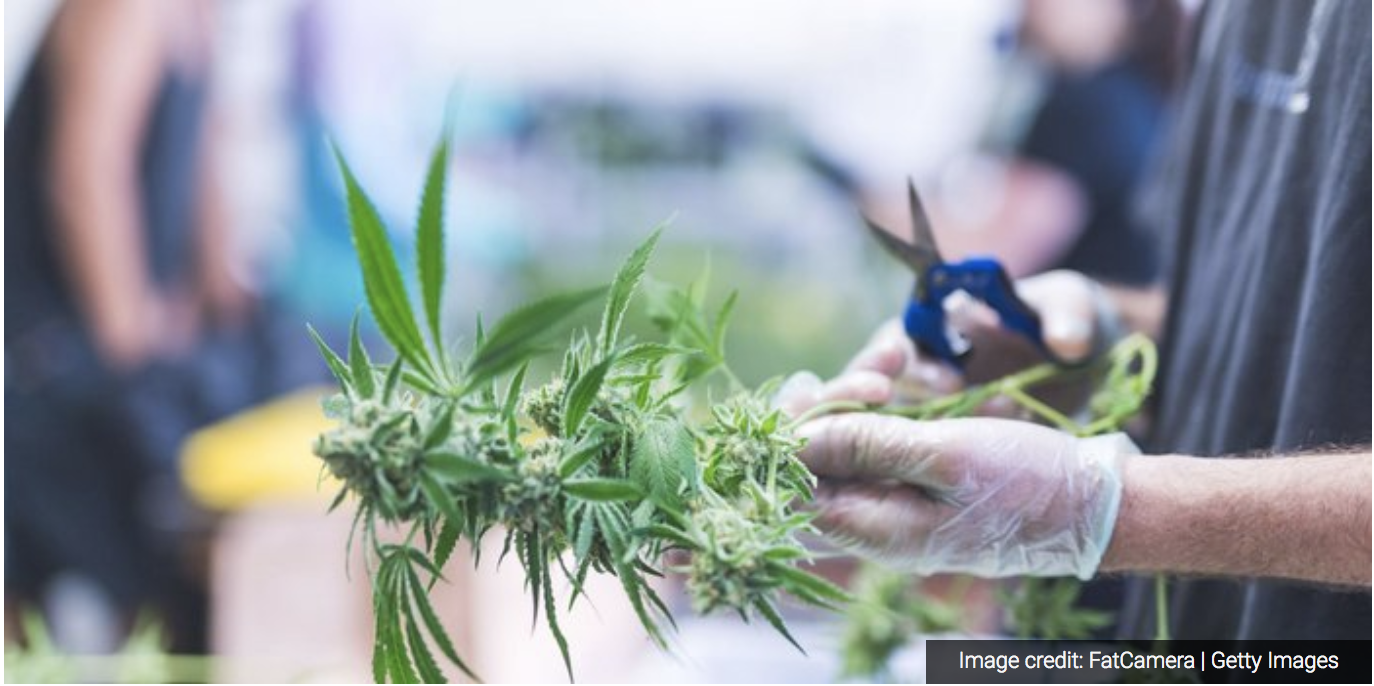
The cannabis sector is one of America’s fastest growing industries. Thirty states have passed medical marijuana laws, and nine of those allow adult use. Nearly two-thirds of Americans support legalization. Despite the influx of consumer interest and cash, people of color are increasingly being left out of the green rush.
American attitudes about cannabis have transformed in a generation, yet echoes of the nation’s failed War on Drugs, implemented in the 1970s by President Richard Nixon and catapulted into a feverish storm during the Ronald Reagan Era, remain. Thiat federal call to action prompted all law enforcement to target people of color. Millions have been prosecuted and incarcerated, some with dubious connections to illegal drugs, particularly marijuana, which remains federally illegal. Meanwhile, minorities remained locked out of potentially the biggest economic boom of our lifetimes. According to a study done by Marijuana Business Daily, more than 80 percent of cannabis businesses are owned by whites, compared to that of less than 5 percent of African Americans and less than 6 percent Hispanic.
The rising number of individual states mandating their own drug enforcement policies and regulating legal cannabis markets has presented a huge opportunity to right past persecution with inclusive business practices. It is the right thing to do and has the potential to positively impact the industry’s bottom line.
Green entrepreneurs take note: here are five reasons why promoting diversity in cannabis makes good business sense.
1. Exposes cannabis to more consumers.
Having a diverse group of employees and business owners who can speak directly to the consumer who identifies with them increases trust and exchange. New minority consumers coming in to do business may feel more comfortable and more open to try cannabis without fear of judgment.
Many consumers of color have been hesitant to embrace the legal market because of persistent stereotypes and lack of visibility. There’s power in connecting with people of similar backgrounds. Minority employees can speak directly to their community’s ailments, empathize with its issues and relate using a shared cultural context. Minority-owned businesses are open doors to communities that would otherwise be skeptical or opposed based on the painful past.
The conversion of black market cannabis buyers into the legal market will allow the market to tap into the trillion dollar spending power of African American, Asian American, Native American and Latinx customers, which means more dollars for both the industry and communities of color.
2. Offers a different perspective for entrepreneurs and investors.
To preserve the existing industry, entrepreneurs must shift consumer focus from cannabis as a commodity to an avenue for multiple brands focused on health, wellness and countless other applications. That means broadening outreach and speaking to all segments of our diverse nation, encouraging more people to purchase cannabis products and reap the benefits. That also means creating products that appeal to consumers at multiple price points.
Entrepreneurs must ensure that some products are affordable to those in impoverished areas, giving them access to the medicine. Some communities of color may be unable to afford the current high-end prices of medicine, tinctures or CBD products. It is imperative that the industry make it within reach. This market is currently underserved, but we can change that by changing who makes the decisions. Adding more Black, Latinx and Asian decision-makers can help innovate how we can get cannabis into minority communities without breaking the bank or adding more resources than necessary.
For entrepreneurs and business owners — cannabis is a global phenomenon — the industry is constantly changing. A diverse range of household incomes must be able to purchase and access the plant. Tobacco companies have created strongholds in low-income areas with products proven to be harmful, even deadly. As an industry, we must figure how cannabis, with its health and wellness benefits, can have a similar impact. Enlisting minorities on boards and in upper management is an essential bridge ensuring that authentic connections are created to underserved communities.
3. Creates more marketing opportunity within the industry.
Diversity in an industry makes dollars and cents. It increases exposure to product, adding value to your brand and company, which is good for the bottom line of any business. Minority-owned cannabis businesses can tap into lucrative niches currently untapped by the mainstream enterprises, a potential gold mine for investors in search of the next big idea.
Many cannabusinesses currently market to the 18-25 year-old white male demographic. However, people of color are cutting edge influencers and culture creators. Much of today’s interest in cannabis can be traced back to hip-hop’s embrace of the plant two decades ago. Marketing campaigns aimed at diverse audiences will ultimately attract all consumers, particularly those invested in pop culture. Smart entrepreneurs of all backgrounds will close the gap and use it as a competitive advantage.
4. Increases the industry’s sustainable growth.
The bigger the industry grows, the better it will be for everyone. A diverse cannabis industry will benefit local communities, business owners and consumers alike.
Cannabusinesses and the overall industry must look at inclusion as a success measurement because community engagement and relationship building are the ultimate anchors of sustainability. From a business standpoint, true diversity has the power to change communities and create partnerships that survive an onslaught. The business would be able to run itself. For the cannabis industry to support the small businesses that will sustain and strengthen the industry, especially in minority communities, we must ensure that businesses are owned by the very same people who live in those places. They know the lay of the land, the needs of the audience and can grow both at the same time.
5. Displays the ‘positive cannabis effect’ and its outreach.
Diversity in cannabis equals positive growth. Those feelings should resonate within the entire industry — from the consumers, to the budtender serving customers to the business owners and investors funding innovation. Cannabis creates positivity. Diversity creates inclusion. Inclusion stimulates economic growth. Including people of color on the business side of cannabis helps reduce the painful impact of discrimination from draconian drug policies.
Diversity makes the industry bigger, more profitable and more resilient. This positive cannabis effect will spread far beyond communities of color to America’s main streets, and even rural middle America, creating mutual respect and appreciation amongst everyone connected to cannabis — entrepreneurs, employees and end users. It may sound naive, but the ability of cannabis to change perceptions can help us all expand our narrow and limiting beliefs about people who are different, transforming attitudes and interactions.
Cannabis consumers are a diverse demographic. Consumption is now mainstream, which means that every consumer should have branded experiences that speak uniquely to them. In order to accomplish this , the industry must welcome distinctive voices from all communities. Inclusion is not just a catch phrase, it’s a managing philosophy. Shifting this paradigm in the industry begins by ensuring that current and future cannabis businesses feature diverse people and points of view. Start by creating opportunities for others.




